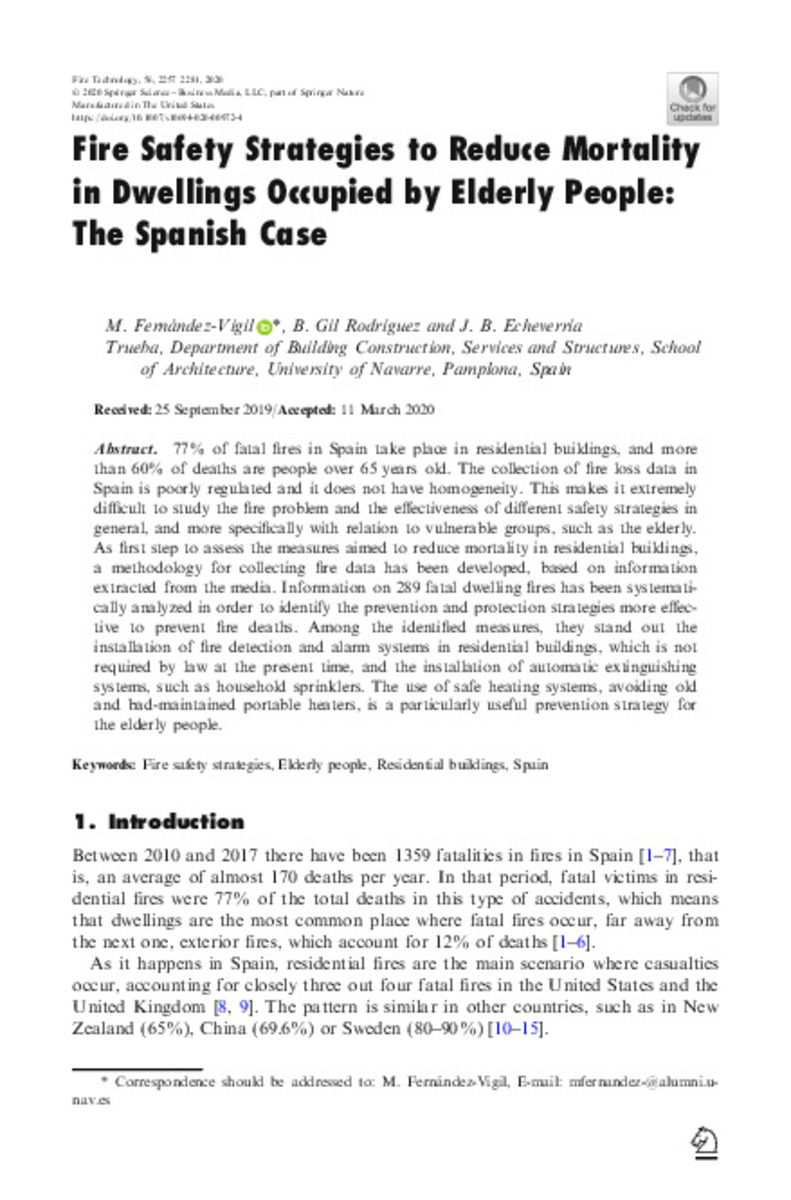Fire Safety Strategies to Reduce Mortality in Dwellings Occupied by Elderly People: The Spanish Case
Palabras clave :
Fire safety strategies
Elderly people
Residential buildings
Spain
Fecha de publicación :
2020
Nota editorial :
© 2020 Springer Science+Business Media, LLC, part of Springer Nature
Cita:
Fernández-Vigil, M. (María); Gil-Rodríguez, B. (Beatriz); Echevarría-Trueba, J. (Juan). "Fire Safety Strategies to Reduce Mortality in Dwellings Occupied by Elderly People: The Spanish Case". Fire Technology. 56, 2020, 2257 - 2281
Aparece en las colecciones:
Estadísticas e impacto
0 citas en

0 citas en

Los ítems de Dadun están protegidos por copyright, con todos los derechos reservados, a menos que se indique lo contrario.







